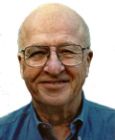
Psychoanalysis
Has Psychology Become One of the Humanities?
Is psychology really scientific--or one of the humanities?
Posted May 13, 2009
Psychology's very emphasis on being scientific has led to its becoming more like one of the humanities than a science.
Back in 1959, C. P. Snow famously spoke of the two cultures, one the world of scientists and the other the world of "literary intellectuals," that is, those in the humanities. The Germans, long before it Snowed, contrasted geisteswissenschaften with naturwissenschaften, knowledge of the spirit or mind as opposed to knowledge of the physical world.
What's the difference between them? Needless to say, gallons of philosophical ink have been poured trying to work out that difference. Let me suggest just one simple difference: knowledge cumulates in the sciences, but not in the humanities.
To be sure, certain kinds of knowledge can cumulate in the humanities, for example, when scholars dig out new facts about the world: a lost manuscript, new historical data, or new biographical information, for example. But when it comes to interpretations of literary texts or historical materials, knowledge does not cumulate. Rather, we have a conversation that need never, in principle, end. And conversation is a good thing: human beings talking to other human beings. That is one value of the humanities.
In the sciences, however, knowledge cumulates. There are false starts, experiments that cannot be replicated, erroneous conclusions, and so on. There is a conversation about those, but it comes to a conclusion, unlike conversations in the humanitie

s which can go on forever. In the neuropsychological literature that I read, scientists are slowly finding more and more bases in brain systems and for a great variety of psychological mechanisms and functions
Psychoanalysis provides an interesting pivotal case. Freud and the other early psychoanalysts thought of each interpretation to a patient as the testing of a hypothesis, with the patient's response being the outcome of what they thought of as an experiment. They regarded their work as scientific. Gradually psychoanalysts stopped thinking this way, and, with the current emphasis on "interpersonal psychoanalysis," have abandoned it altogether. Nowadays they publish papers as part of a continuing conversation with no end intended. The most distinguished of French psychoanlysts told me that he did not regard himself as an analyst, but as a philosopher.
But the same thing is taking place (with a difference!) in orthodox psychology. Knowledge does not cumulate, but researchers publish papers endlessly, dare I say it?, like professors of English.
The problem comes from the very effort to be scientific. As philosopher Paul Diesing pointed out long ago, psychological experiments tend to get more and more specific. Experimenters will use exactly defined methods and procedures. They will use highly specific statistical tests appropriate to the experiment at hand. They may select subjects with very special characteristics. All this is, of course, quite appropriate in a discipline seeking to be scientific. But the end result is a teeny, tiny conclusion that cannot be added to other experiments with differently specific subjects, different statistical tests, different methods and procedures. No cumulation. No science.
For example, one experimenter I know studies the way we forget words. A word can feel as though it is on the tip of my tongue, but I can't quite speak it. She does beautiful work. She can prove, for example, that a cue that gives the beginning of the forgotten word works better than a cue that gives the end of the word. That's fine. But how can we add that to other experiments on, say, forgetting directions to a destination or not being able to name an acquaintance you meet on the street? The very precision, the very scientificity (if I can use such a word) of her results, rules out scientific cumulation. When I ask my psychology students, What major conclusions about the human mind can you draw from contemporary psychological research?, I draw a blank.
Why should this be? I will offer a guess. Scientific psychology becomes unscientific because it is dealing with mind, and mind does not lend itself to experimental precision. As Eric Kandel has famously said, "Psychoanalysis still represents the most coherent and intellectually satisfying view of the mind." By contrast, neurological science deals with the physical world, i.e., the brain, and neuropsychology can have as much precision as we humans are capable of. We come back to the difference between naturwissenschaft and geisteswissenschaft. But that's just my guess.
Can psychology become scientific again? It's hard to see how, unless there is a major change in methods and demands. But I'd be very curious to read what some of you out there think. I'm just plain puzzled.
Works I've referred to:
Diesing, Paul. Patterns of Discovery in the Social Sciences. Chicago: Aldine-Atherton, 1971.
Diesing, Paul. How Does Social Science Work? Reflections on Practice. Pittsburgh: University of Pittsburgh Press, 1991.
Kandel, Eric R. "A New Intellectual Framework for Psychiatry." American Journal of Psychiatry 155.4 (Apr 1998): 457-69.

